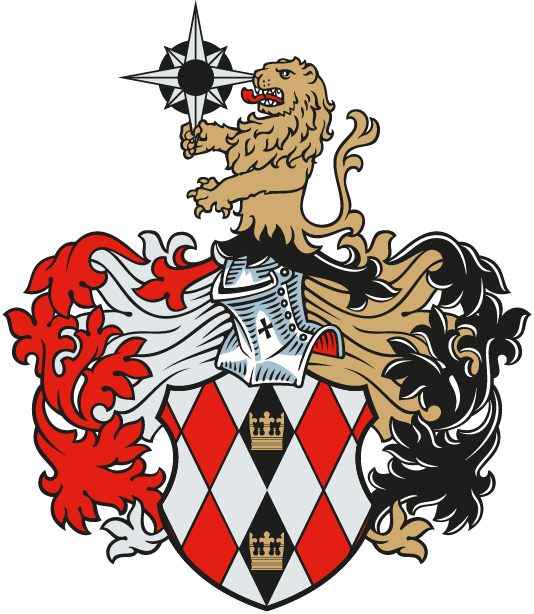

Dubai is buzzing again — not just with tourists or towering cranes, but with a new kind of energy. Young talent, tech startups, and mega infrastructure projects are rewriting the city’s future. From the heart of the desert rises a smarter, faster, greener metropolis, and the property market is feeling the pulse. With over 13 million passengers on the Dubai Metro already this year and a digital economy worth AED 100 billion, investors are paying attention.
It’s just past 8 a.m. at Dubai Internet City. The sun flashes off the mirrored sides of glass towers, and a stream of young professionals pours out of the metro station. Laptops in hand, sneakers pounding the pavement, they move with purpose. This isn’t just a morning rush — it’s a glimpse into the future of the city.
Dubai is in motion. And not just because of its ever-expanding skyline. The emirate is riding a powerful wave powered by three unstoppable engines: a youthful, ambitious population; a booming digital ecosystem; and a massive metro and infrastructure expansion. The combination is transforming the economic landscape — and real estate is riding shotgun.
In 2023 alone, the Dubai Metro recorded over 113 million riders. That’s not just a number — it’s a signal. People are moving, commuting, living differently. And developers are building for them. Mixed-use hubs, transit-oriented developments, and smart communities are springing up along the metro lines from Al Furjan to Expo City.
But it’s not just about movement. It’s about mindset. Over 2.5 million youth call Dubai home. Many of them aren’t just working in tech — they’re building it. With AED 100 billion already flowing through the emirate’s digital economy, startups and innovation hubs are becoming the new anchors for urban development. Offices are filling. Co-working spaces are buzzing. Cafés double as pitch decks.
“We wanted a place where our team could grow, collaborate and access the city easily,” says Rami, 29, who co-founded a fintech startup now based in Dubai Silicon Oasis. “Being near the metro made all the difference. Our rent is lower, but our connections are faster.”
That synergy between mobility and innovation is at the heart of Dubai’s next growth chapter. The government’s commitment to infrastructure is turning vision into velocity. Projects like the Route 2020 metro extension are not only connecting neighborhoods but unlocking whole new zones for development. Al Maktoum International Airport’s expansion and the Dubai Urban Tech District are further pushing the boundaries of what’s possible.
One look at the property market, and the impact is clear. Residential and commercial demand is surging in areas served by the metro. Developers are pivoting toward smart buildings and sustainable communities. Prices in neighborhoods along the Red and Green Lines have seen double-digit growth. And there’s more to come.
“We’re not just building buildings,” says Leila, a project manager at a major Dubai developer. “We’re building ecosystems. Places where people can live, work, innovate — all within walking distance of a metro station.”
Meanwhile, Expo City Dubai, the legacy site of Expo 2020, is fast becoming a model for the city’s future. Powered by clean energy, connected by rail, and designed for innovation, it’s attracting both residents and global businesses. It’s not just a new neighborhood — it’s a new narrative.
For real estate investors, the message is clear: follow the metro, follow the tech, follow the youth. Areas like Dubai Silicon Oasis, Al Furjan, and Expo City are no longer peripheral — they’re central to the city’s growth strategy. Transit-oriented development is proving to be more than a trend; it’s a blueprint for value creation.
Property near Dubai Metro stations continues to outperform the market average. According to local analysts, rental yields in these zones have risen by 15–20% in the past year, with occupancy rates close to 95%. Investors looking for long-term capital appreciation and stable rental income are eyeing these corridors with renewed interest.
Moreover, the integration of digital infrastructure into urban planning — smart buildings, IoT-enabled energy systems, high-speed connectivity — is creating a new class of premium properties. In areas like the Urban Tech District and Dubai Internet City, commercial real estate is seeing record demand from tech firms, accelerators, and global HQs relocating to Dubai.
Infrastructure projects like the Dubai Metro expansion, the re-development of Al Maktoum International Airport, and smart city initiatives are not just beautification schemes — they are catalysts for economic activity and real estate boom cycles. With policies favoring foreign investment, streamlined visa processes, and high ROI potential, Dubai is solidifying its role as a magnet for global property investors.
In a city where the skyline is constantly evolving, the smartest move might be to look underground — because that’s where the metro lines are. And wherever they go, opportunity follows.
